Anxiety affects nearly 20% of adults in the U.S., and for many, medications become an essential part of managing their symptoms. As a board-certified Family Practice physician, I’ve often seen the impact anxiety has on patients’ lives. When anxiety interferes with day-to-day functioning, understanding medication options becomes crucial.
Understanding Anxiety and the Need for Medications
At its core, anxiety is an overactive fight-or-flight response. Imagine a bear charging at you—your body reacts by increasing your heart rate and adrenaline levels to help you survive. Now picture this response happening during everyday situations, like speaking in front of people or even in a quiet room. This is what chronic anxiety feels like for many individuals.
For patients who have tried natural methods like therapy, exercise, or mindfulness without success, medication can be an important tool in gaining back control. Let’s dive into some of the most commonly prescribed medications and the situations in which they are most effective.

Immediate Relief: “Treat as You Get It” Medications
When anxiety comes in sudden waves, as with panic attacks or situational anxiety (like public speaking or flying), short-term relief can make a world of difference.
- Benzodiazepines like Xanax (alprazolam) and Valium (diazepam) are fast-acting and effective for acute anxiety episodes. These medications, however, come with risks of dependence and are not suitable for long-term use. As I tell my patients, “If you need to take them frequently, it’s time to explore safer, long-term solutions.”
- Beta blockers like propranolol are great for situational anxiety, such as stage fright or performance anxiety. They help by reducing physical symptoms like a racing heart without sedating the mind(Banner Health).
Preventive Measures: Daily Medications for Ongoing Anxiety
For those experiencing generalized anxiety on a daily basis, medications that prevent symptoms from arising are more appropriate.
- Selective Serotonin Reuptake Inhibitors (SSRIs) like sertraline and escitalopram are the first-line treatment for anxiety. SSRIs take several weeks to build up in the system, but they work by adjusting the serotonin levels in the brain, providing a long-term solution(Banner Health)(Banner Health).However, they are not without side effects. Some patients experience nausea, sleep disturbances, or sexual dysfunction, which is why it’s crucial to work with your doctor to find the right medication for you.
- Serotonin-Norepinephrine Reuptake Inhibitors (SNRIs), like venlafaxine and duloxetine, are another class of medications used for persistent anxiety. They help by affecting both serotonin and norepinephrine and may be a better option for patients who don’t respond well to SSRIs(Banner Health).
Other Medications for Anxiety
Some patients may not tolerate SSRIs or SNRIs well, so we look at other alternatives:
- Buspirone: While not as potent as SSRIs, buspirone is often used in combination with other medications and tends to have fewer side effects.
- Hydroxyzine: A sedating antihistamine, useful for nighttime anxiety but not ideal for daily use due to its sedative properties.
- Gabapentin: Originally an anti-seizure drug, gabapentin has been found to reduce anxiety for some patients, especially those with additional neurological symptoms.
Weighing the Options with Your Doctor
Ultimately, choosing the best medication for anxiety is about personalized care. I encourage patients to discuss not only their anxiety symptoms but also their lifestyle, any co-existing health conditions, and their goals for treatment. While SSRIs and SNRIs are often the go-to choices, benzodiazepines or beta blockers may be used for short-term relief.
Remember, medications are a tool, not the sole solution. Combining them with therapy, mindfulness, and lifestyle changes often yields the best results.






